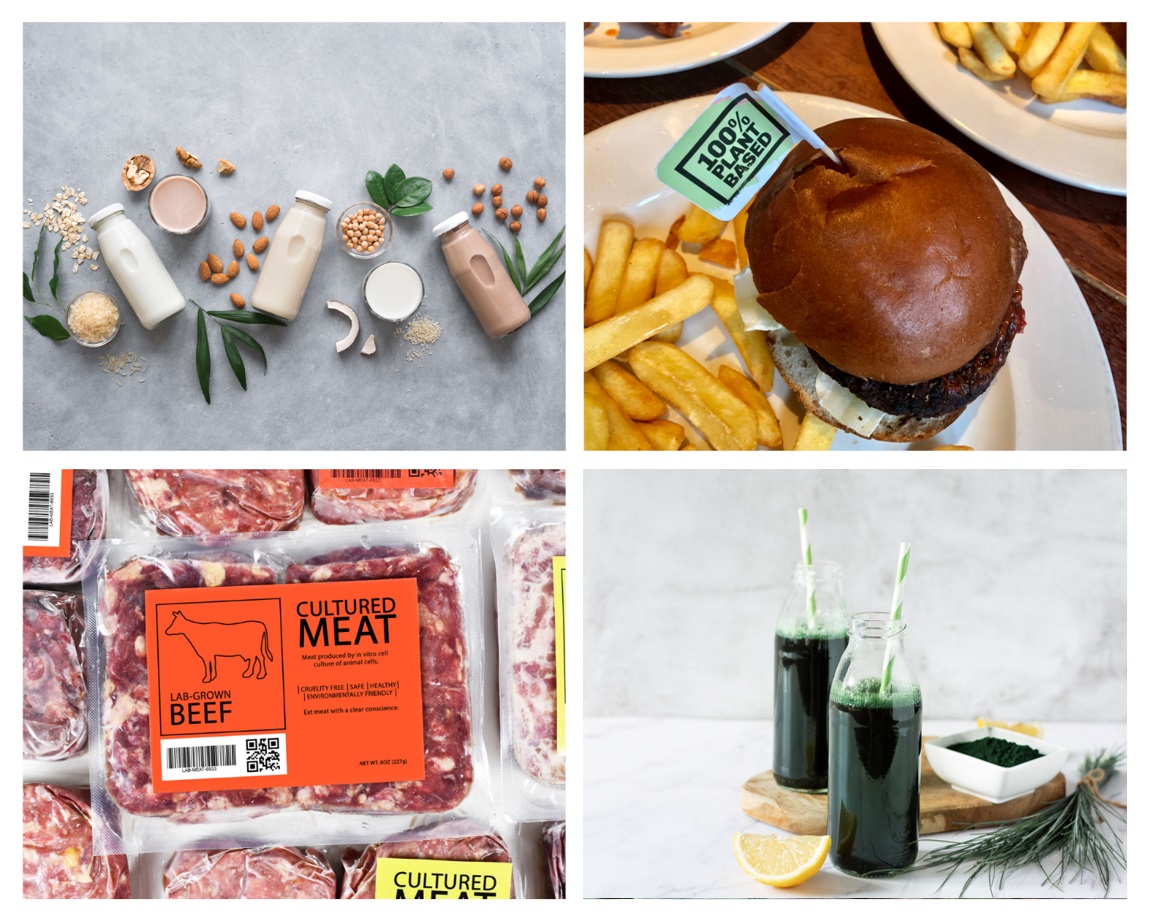What are alternative proteins?
Alternative proteins refer to proteins which do not come from animals. Some alternative proteins, such as plant-based “mock meat” products made of soy or wheat proteins, have long been a traditional feature in our diets.
However, there are other forms of alternative proteins which do not have a history of being consumed as food – including cultured or cell-based meat grown under controlled conditions, and certain species of algae, fungi (mycoprotein) and insects. In Singapore, these alternative proteins are considered novel food and must be assessed for safety before they can be allowed to be used in food for sale.
How are alternative proteins regulated in Singapore?
Food safety must be a principal consideration when companies develop food products, novel or otherwise. Alternative proteins that do not have a history of being consumed as food will only be allowed for sale after they have been found to be safe for consumption.
In 2019, SFA introduced the novel food regulatory framework which requires companies to seek pre-market assessment for novel food such as alternative protein products that do not have a history of being consumed as food. Companies are required to conduct and submit safety assessments of the protein to cover potential food safety risks, including toxicity, allergenicity, safety of its production method, and dietary exposure arising from consumption. They must also provide detailed information on the materials used in their manufacturing processes and how these processes are controlled to prevent food safety risks.
SFA will review these safety assessments to ascertain that potential food safety issues have been addressed.
To ensure that the safety assessments are rigorously reviewed, SFA formed a Novel Food Safety Expert Working Group in March 2020 to provide scientific advice. The expert working group is chaired by the Head of the Centre for Regulatory Excellence, and comprises experts in food toxicology, bioinformatics, nutrition, epidemiology, public health policy, food science and food technology.
An example of a novel food and alternative protein product which has gone through SFA’s safety assessment review is Eat Just, Inc.’s cultured chicken. Together with our expert working group, SFA conducted an extensive and thorough review of Eat Just’s safety assessments for food safety risks. No food safety concerns were found and Eat Just’s cultured chicken was allowed to be sold in Singapore as an ingredient in its nuggets product.
SFA will continue to keep abreast of the latest developments and update our safety assessment considerations to ensure food safety.
How would consumers know whether they are eating alternative proteins?
Instead of just labelling their products as meat, companies selling pre-packaged alternative protein products in Singapore will be required to label the product with qualifying terms such as “mock”, “cultured” or “plant-based” to indicate their true nature, so that consumers may make informed decisions when deciding whether to consume these products.
Some examples of such qualifying terms can be seen from the labelling of “mock meat” products, which are made of plant proteins (e.g. soy or wheat) and do not contain any meat, as well as “imitation crabmeat” products made of surimi fish paste.
Food establishments will also be required to clearly communicate to their customers the true nature of their food sold. For example, misrepresenting cultured meat as conventionally produced meat to consumers will not be allowed.
Food traders and establishments selling alternative protein products, and deemed to misrepresent the true nature of the food sold, may be convicted under the Sale of Food Act.
About the Author
Johnny Yeung is a Senior Scientist from the Risk Assessment and Communications Department of the National Centre for Food Science. With a Masters in Medicinal Chemistry from Imperial College, Johnny leads SFA’s Novel Food Assessment Team and has been deeply involved in data and digitisation projects for food safety assurance in Industry 4.0. He is currently doing his PhD in Population Health in the Lee Kong Chian School of Medicine.

